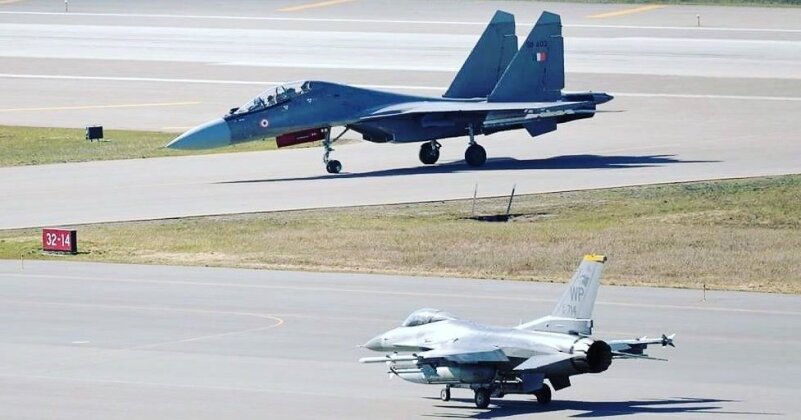News
Turkey Continues Warning it Will Buy Su-35s if America Refuses it F-16s – Empty Threats or a Real Acquisitions Plan?

The head of Turkey’s top defence agency the Presidency of Defense Industries, Ismail Demir, has warned that the country will consider acquiring Su-35S fighter jets from Russia if the United States refuses to supply it with modern F-16s. “If there will be no F-16s … We’ll say that Turkey is not without alternatives. All alternatives, including the Su-35, come to the table,” he stated on September 24. Efforts to acquire new F-16s have faced considerable opposition in Washington, with relations having been in decline since a failed military coup attempt in Ankara in 2016 was widely blamed on Washington. Turkey and Russia have held talks for a Su-35 acquisition from 2018, which reportedly entered their final stages in October 2019 although these were widely interpreted as an effort by Ankara to place pressure on Western suppliers rather than a sign of genuine interest in the aircraft.
The Su-35 is a heavyweight twin engine fighter with far higher lifetime and operational costs than the F-16, and has a wider range of significant advantages in almost all parameters of performance from its endurance and manoeuvrability to its sensors and engagement range. Its overwhelmingly superior flight performance was demonstrated in Turkey itself in September 2019 leaving audiences throughly unimpressed with the contrasting performance of the F-16. The fighter is close to twice the size of the F-16, but is not compatible with NATO weaponry and cannot be as easily integrated into the Turkish Air Force as new F-16s could. Turkish license production of older F-16 variants has meant that spare parts and maintenance infrastructure for the class are abundant, and can be locally sourced, while its experience operating the class is considerable despite much of the air force officer corps having been jailed in 2016. A further downside of Su-35 acquisitions is that they could potentially expose Turkey to new rounds of economic warfare efforts from the United States, which by domestic law is bound to sanction all major clients for Russian armaments.
Although the Turkish Air Force is by far the largest foreign operator of the F-16 with close to 250 in service, its fleet has grown largely obsolete and relies on ageing munition classes from the 1990s and mechanically scanned radars prone to jamming. The new F-16 Block 70/72 variant it is seeing to replace its ageing Vietnam War era F-4 Phantoms benefits from integration of an AESA radar, state of the art electronic warfare capabilities and access to modern munitions including, if Washington agrees to the sale, AIM-120D air to air missiles. MiG-29SMT and Rafale fighters recently acquired by Syria and Greece respectively both have electronically scanned array radars and more capable air to air missiles than the AIM-120B Turkish F-16 units currently rely on. Despite improvements to newer variants, the F-16 airframe has nevertheless been widely derided as increasingly obsolete with the U.S. Air Force having ceased acquisitions in 2005 and many major operators such as Singapore, Egypt, Israel and the U.S. itself beginning to phase the class out of service.

Turkish interest in modernised F-16s comes after the country was evicted from the program to develop a fifth generation successor, the F-35, leaving its fighter fleet without a clear path to modernisation. Interest in more F-16s at a time when the class is seeing new sales mainly in clients with less developed economies and low defence budgets, and in one case to a non-state actor, reflects a serious downgrading of Turkish ambitions for its fleet as neighbours acquire higher end classes of fighter. Some examples include F-35s being sold to Israel and likely soon to Greece, F-15SA/QA jets going to Saudi Arabia and Qatar, Su-30SMs sold to Armenia, and MiG-29M and possibly Su-35 fighters sold to Egypt.












